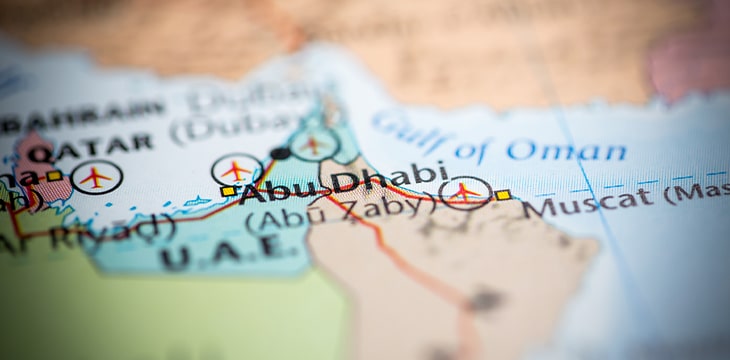|
Getting your Trinity Audio player ready...
|
Abu Dhabi wants to be the next jurisdiction to regulate the trading of non-fungible tokens (NFTs), with one of its free zones proposing draft recommendations to police the burgeoning industry.
The Abu Dhabi Global Market, a financial hub and free zone in the UAE city, released a consultation paper this week seeking to improve its financial sector. Titled “Proposals for Enhancements to Capital Markets and Virtual Assets in ADGM,” the paper delved into securities trading, derivatives, sustainable finance, fundraising and more.
On virtual assets, the paper noted that the ADGM’s Financial Services Regulatory Authority (FSRA) has previously issued a regulatory framework and it’s still enforcing it. The agency will be updating this framework to take account of changes in the market.
The FSRA also recognized the growing significance of NFT markets within the wider digital asset markets. It categorizes them as “intellectual property rights over unique creations” and claims that they are not themselves specified investments or financial instruments.
At present, the agency is not proposing a formal regulatory framework for the sector. However, it’s open to NFT activities being undertaken within the free zone in certain circumstances, such as when a regulated financial entity wishes to offer NFT trading services. The FSRA is very particular that such NFTs must not relate to specified investments as that would place them under existing financial regulations.
Financial entities that offer NFT trading services must also be aware that such activities could trigger the requirement to comply with the ADGM’s Anti-Money Laundering and Sanctions Rules.
Commenting on the proposals, the CEO of the ADGM Emmanuel Givanakis said the free zone had been looking at NFTs for the past six months.
“At this stage, the way we’re trying to do it is to gradually bring them into our ecosystem. NFTs themselves are not financial instruments – they’re comparable to a piece of art. If there’s a derivative built around them, then yes, then they become a financial instrument,” Givanakis commented.
The stipulation comes at a time when regulators have grown concerned about the prospect of money laundering through NFTs. With the sector being mostly unregulated and being easy to manipulate, criminals can easily launder their money while faking legitimate trading.
According to New York-based Chainalysis, illicit activities on NFT marketplaces jumped significantly in 2021. Funds from scams accounted for the largest share of illegal funds in NFTs, with stolen funds and from addresses that have been sanctioned also growing in significance.
“Money laundering, and in particular transfers from sanctioned cryptocurrency businesses, represents a large risk to building trust in NFTs, and should be monitored more closely by marketplaces, regulators and law enforcement,” Chainalysis wrote at the time.
Watch: BSV Stories – Episode 4: The Middle East’s Blockchain Race

 02-18-2026
02-18-2026 




